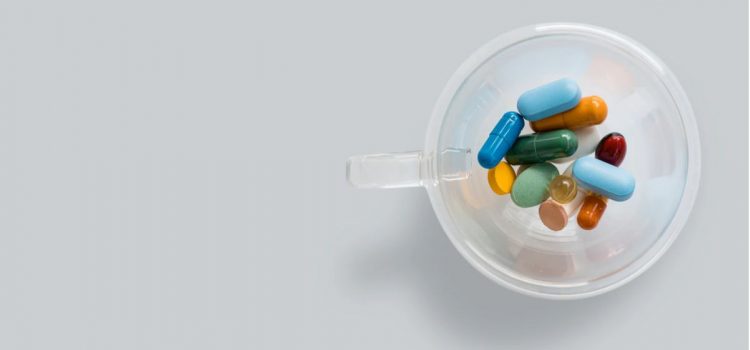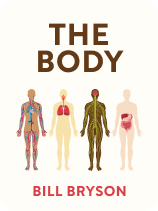

This article is an excerpt from the Shortform book guide to "The Body" by Bill Bryson. Shortform has the world's best summaries and analyses of books you should be reading.
Like this article? Sign up for a free trial here .
Can you take too many vitamins? How many of each vitamin does the body actually need?
Bill Bryson, the author of The Body, explains that most people are vitamin-deficient because of the abundance of processed foods. However, Bryson says that scientists can’t agree on how much of each vitamin you’re supposed to take.
Here’s why taking vitamins is a balancing act.
Get Enough Vitamins
Modern society enjoys an abundance of food, but despite this, many people today suffer from vitamin deficiencies. Bryson points out that, in a sense, this is actually because of the abundance of food: Our hunter-gatherer ancestors ingested plenty of vitamins and minerals because they had to eat every berry and root they could find just to meet their daily calorie needs. But modern foods are so high in calories that we can get more than enough calories without getting nearly as much variety of nutrients.
(Shortform note: Some experts take this principle a step further, arguing that early humans became dependent on vitamins because they consumed so much of them. For example, in In Defense of Food, Michael Pollan asserts that our ancestors had the ability to produce their own vitamin C, but they ingested so much vitamin C from the fruit they ate that this ability atrophied and eventually disappeared.)
How Much Is Enough?
Can you take too many vitamins? According to Bryson, scientists unanimously agree that your body needs just the right amount of each vitamin and essential mineral to function properly: Getting too much or too little of a given nutrient are both dangerous. Unfortunately, scientists don’t agree on how much of each is the right amount, or even which ones are essential.
(Shortform note: The principle that too much of an essential nutrient can be harmful is essentially a special case of the First Rule of Toxicology, which is often stated as “the dose makes the poison.” In other words, practically any substance becomes toxic if you ingest enough of it, although the amount varies greatly from one substance to another.)
For instance, most scientists agree that sodium (which we get mostly from salt) is an essential mineral. However, some argue that a high sodium intake (3,000 mg per day or more) increases your risk of heart attack and stroke, while others argue that, unless you suffer from certain heart problems, high sodium intake actually reduces your risk of heart attack and stroke.
(Shortform note: Examining a few other sources provides additional perspective on just how widely opinions on ideal sodium intake vary. Most scientific studies on sodium intake have recommended daily limits in the range of 2,300 to 5,000 mg, but in How Not to Die, Michael Greger argues that the limit should be only 500 mg. Meanwhile, most studies to date have focused solely on the benefits of reducing sodium intake, while the idea that high sodium might be beneficial appears to be a recent development. In 2013, the New Zealand Ministry of Health reported that a high-sodium diet provided no known health benefits, while the study that Bryson cites promoting a high-sodium diet was published in 2016.)
In addition to sodium, Bryson discusses arsenic, a mineral that most of us regard as poisonous. Scientists agree that arsenic (in small amounts) is actually an essential mineral for some animals. Yet they disagree about whether it is essential for humans. If we do need it, we certainly don’t need very much of it.
(Shortform note: To better understand this controversy and the uniqueness of the human body, it’s worth pointing out that not all living creatures react to arsenic as negatively as humans do. In horses, arsenic is an important mineral that stimulates appetite and hair growth. In nature, horses usually get enough arsenic from the plants that they eat, which pick up trace quantities of arsenic from the soil. As veterinarian Ben Green recounts, domestic horses are sometimes given tonics or supplements that contain arsenic to improve their appearance by making them gain weight and grow a fuller coat of hair. However, horses that receive supplemental arsenic can become dependent on it, to the point where they can’t maintain a healthy weight without it.)
Rounding out his discussion of the differences of scientific opinion on appropriate doses of vitamins and minerals, Bryson recounts how biochemist and Nobel Laureate Linus Pauling claimed that large doses of vitamin C (3,000 mg per day) would prevent the common cold and improve the recovery rate of cancer patients. But similar studies published by the Mayo Clinic concluded that large doses of vitamin C showed no statistically significant benefit.
| Explaining the Vitamin C Discrepancy The discrepancy in results of vitamin C studies could be due to compounding factors. Your body regulates its functions with a combination of many different vitamins, but many of the historical vitamin C studies focused exclusively on vitamin C intake. If the benefits come from a combination of vitamin C with certain other vitamins that weren’t accounted for in the studies, that could explain why some studies found benefits and others didn’t. Perhaps future studies will address this issue in more detail. Already, a few studies have compared the benefits of vitamin C for people with different lifestyles. They concluded that people who were very active, such as athletes and soldiers, caught fewer colds and had less severe symptoms if they consumed a lot of vitamin C, but that these benefits disappeared for people with less active lifestyles. |

———End of Preview———
Like what you just read? Read the rest of the world's best book summary and analysis of Bill Bryson's "The Body" at Shortform .
Here's what you'll find in our full The Body summary :
- A whirlwind tour of the human body’s various systems
- Why your sense of smell is probably as good as your dog’s
- How hot peppers increase your life expectancy






